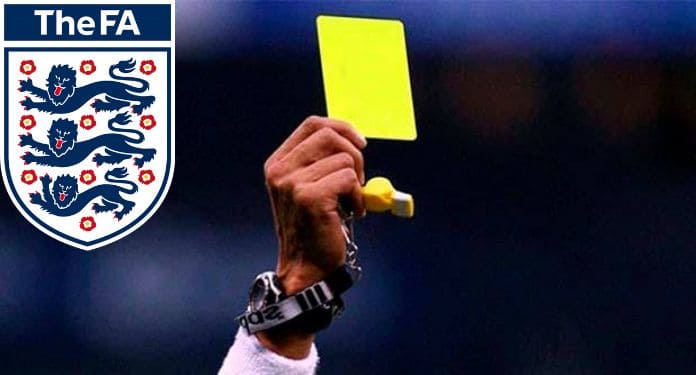The English Football Association wants sportsbook operators to stop accepting bets on yellow cards and other in-game incidents.
The order is in response to concerns about timely remediation amid a string of high-profile cases.
The English Football Association believes these match betting markets are vulnerable to manipulation.
Mail Sport claims to have learned that FA officials have spoken with operators and the government about restrictions on betting markets offered in certain competitions.
The Premier League is believed to support the decision.
Some countries, including Germany and Sweden, have already banned betting on yellow cards altogether.
In the UK, some major bookmakers have stopped accepting them due to sporting integrity concerns.
FA investigating Brazilian over alleged yellow card betting
The FA’s apparent intervention comes as it investigates alleged suspicious betting patterns around cards received by Brazilian player Lucas Paquetá at West Ham in three Premier League games this year.
This is the fourth high-profile yellow card investigation in five years, and Mail Sport claims it has been told there were more that have not been made public.

No action has been taken following inquiries into the bookings received by Granit Xhaka and Ciaran Brown, but last season, former Reading defender Kynan Isac was suspended for nearly 12 years for deliberately picking up a yellow card.
In 2018, Lincoln City’s Bradley Wood was banned for six years for purposely getting a yellow card in two games to try to win an estimated $13,000 in pre-arranged bets.
The invention of the yellow card
On July 23, 1966, at Wembley Stadium, in London, for the quarterfinals of the World Cup, England and Argentina disputed a place in the semifinal.
At that time, the referees made gestures and shouted to communicate on the field, and depended only on the whistle, but this match changed that.
The already tense confrontation got even more nervous when the number 10 of Argentina, Antonio Rattin, was expelled by the German referee Rudolf Kreitlen.
Rattin contested the foul and the referee, who did not understand Spanish, decided to expel the Argentine.
But as the referee could not get the player out of the field, he resorted to Ken Aston, responsible for refereeing at the World Cup and who, after all that confusion, began to think of a way to signal, taking inspiration from the traffic lights used all over the world. .
The proposal was accepted by FIFA and implemented in the the World Cup in Mexico, which followed.
Yellow and red cards have thus been used since 1970, and have become a fundamental tool for soccer referees.




















































